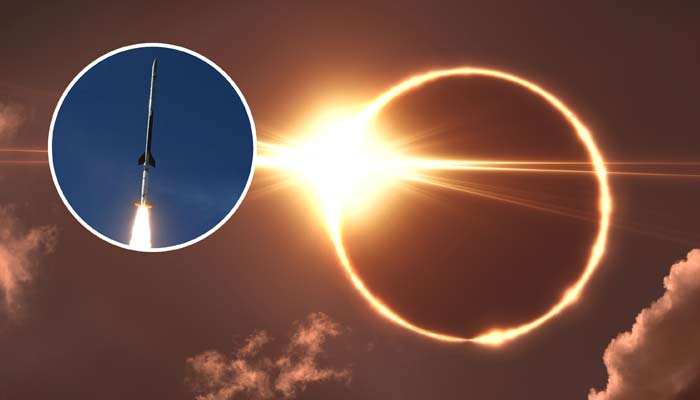Solar Eclipse: Nasa is launching 3 rockets straight into celestial event
Nasa's Solar Eclipse launches aim to serve significant purpose
A total solar eclipse, occurring on April 8, will cause darkness to fall over portions of the United States, Canada, and Mexico as the moon perfectly passes in front of the sun.
Not only are millions of delighted onlookers anticipating the eclipse, but Nasa scientists in Virginia are intending to take advantage of the few minutes of darkness by firing rockets straight into the eclipse's shadow, according to Live Science.
In addition to being aesthetically pleasing, the launches serve a significant scientific purpose by illuminating how the abrupt decrease in sunlight impacts the atmosphere of our planet.
It is known that the abrupt change from day to night can result in severe temperature reductions and even fool animals into acting like they are at night.
However, little is known about how the short bursts of darkness affect the ionosphere, which separates Earth's upper and lower atmosphere and stretches from 55 to 310 miles (90 to 500 km) above the planet's surface.
Here, the sun's UV radiation regularly separates electrons from atoms, creating a large number of electrically charged particles that inflate the upper atmosphere.
As these ions rejoin into neutral atoms at dusk, they thin down before being torn apart once more at daybreak.
"If you think of the ionosphere as a pond with some gentle ripples on it, the eclipse is like a motorboat that suddenly rips through the water," Aroh Barjatya, a professor of engineering and physics at Embry-Riddle Aeronautical University, said in a 2023 Nasa article.
"It creates a wake immediately underneath and behind it, and then the water level momentarily goes up as it rushes back in," he added.
-
Shanghai Fusion ‘Artificial Sun’ achieves groundbreaking results with plasma control record
-
Polar vortex ‘exceptional’ disruption: Rare shift signals extreme February winter
-
Netherlands repatriates 3500-year-old Egyptian sculpture looted during Arab Spring
-
Archaeologists recreate 3,500-year-old Egyptian perfumes for modern museums
-
Smartphones in orbit? NASA’s Crew-12 and Artemis II missions to use latest mobile tech
-
Rare deep-sea discovery: ‘School bus-size’ phantom jellyfish spotted in Argentina
-
NASA eyes March moon mission launch following test run setbacks
-
February offers 8 must-see sky events including rare eclipse and planet parade












